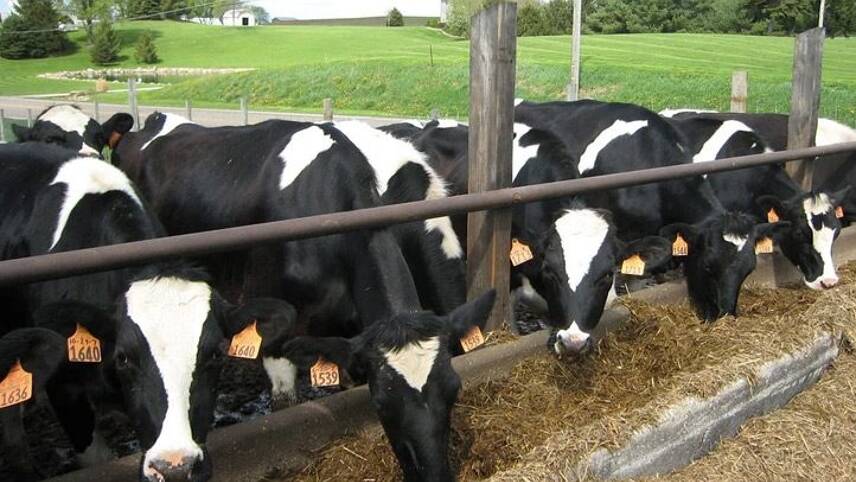Register for free and continue reading
Join our growing army of changemakers and get unlimited access to our premium content

Emissions from the livestock sector are estimated to account for 15% of the global total.
In its new ‘The Future of Food’ report, the non-profit details the ways in which 132 of the world’s largest and most influential food corporations are responding to the climate crisis, based on their public commitments around topics such as animal feed and the growing popularity of plant-based diets.
Businesses covered by this analysis include major retailers, restaurant chains, foodservice providers and dairy, meat and animal feed producers.
The report found that action on plant-based protein has accelerated in recent times, with one in two businesses assessed working to increase their consumer-facing offering of vegan or vegetarian products.
With Jeremy Coller’s FAIRR initiative estimating that the global market for alternative plant-based proteins could expand at an annual rate of 8.29% in the next three years and reach $5.2bn by 2020, this finding perhaps comes as no surprise. The likes of Greggs, KFC, Burger King and Mars have all launched new vegan products in 2019, receiving much positive media attention for doing so.
But Forum For the Future’s research found that the majority of businesses assessed have also continued to grow their meat, fish or dairy range, with the WRI and USDA both recording growth in meat consumption. This trend, the report states, evidences the fact that businesses aren’t prioritising numerical, time-bound targets around sustainable protein in their business models.
And while businesses are buying into the plant-based transition on a consumer-facing level, less ambition and action was found by Forum for the Future at a supply chain level. Less than one-third of companies assessed in the report are taking action on animal feed sustainability, which Forum for the Future primarily attributes to a lack of awareness.
Animal feed usually contains soy beans, soy meal or soy oil, but the commodity is widely linked to deforestation Fish feed poses its own sustainability challenges, in that the fishmeal used to make many feeds can be linked to overfishing and human rights abuses.
In order to combat these challenges, the report sets out a five-point action plan for businesses across the food sector, headed up by a call for the development of “integrated protein strategies” which link to corporate climate targets.
The other points on the action plan are making public, time-bound commitments on sustainable animal feed; aligning all business functions with the shift to healthy and sustainable proteins through top-down action; collaborating on pre-competitive issues such as scaling sustainable sourcing and advocating for change across the sector. Forum For the Future believes the latter of these actions should see businesses engaging with policymakers, investors and NGOs as well as consumers.
“The urgent need for the food system to transform, to enable a positive and sustainable future for people and the planet, has galvanised public interest – but we need to see companies taking a more ambitious, integrated approach to sustainable nutrition – and that means addressing sustainability across plant, meat and dairy production and consumption; and putting sustainable protein at the core of business strategies,” Forum for the Future’s associate director for sustainable nutrition, Lesley Mitchell, said.
“Businesses can lead the change needed and the five-point plan is designed to accelerate progress. The big question is what their business will look like in a world where sustainable, nutritious, affordable protein is the norm – and start shaping that future, today.”
A meaty issue
The need to tackle the climate impact associated with the human consumption of meat and dairy is significant, with GHG emissions from the livestock sector estimated to account for 15% of the global total. This figure is set to hit 80% of the planet’s carbon budget by 2050 as the global population grows to reach 10 billion people – who will need to be fed in in a more sustainable way than at present.
The global meat sector is widely classed as a key contributor to climate change – and one of the worst-prepared industries for climate challenges such as droughts, floods and heatwaves in the world. Indeed, none of the industry’s major corporates have aligned themselves with the Paris Agreement’s flagship goal of limiting the world’s temperature increase to 1.5C, with only 28% of the world’s largest 60 intensive farming firms having to set any plans for climate risk mitigation.
Meat and dairy production is also, broadly, very water-intense, and believed to take up around 83% of farmland globally. On this land management piece, the Intergovernmental Panel on Climate Change (IPCC) estimates that food and drink production alone is has been the driver of 75% of deforestation by area size to date.
Sarah George


Please login or Register to leave a comment.